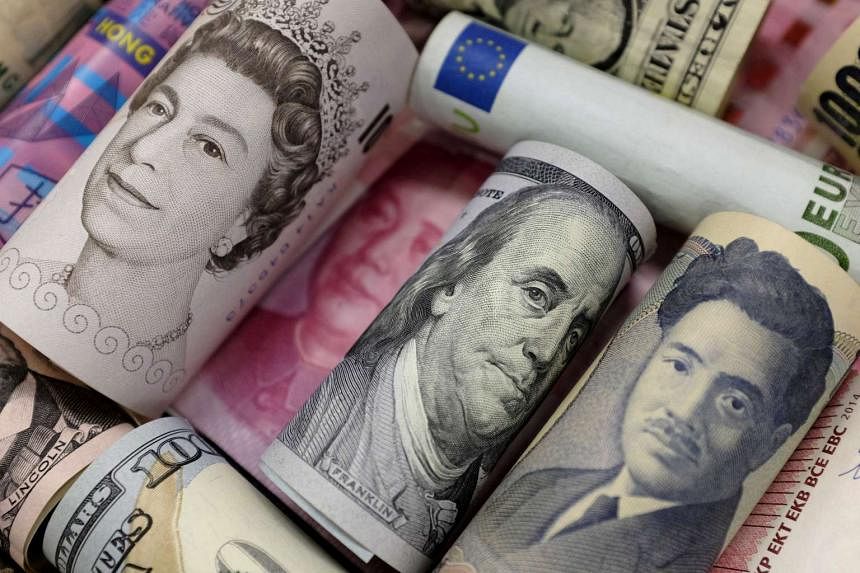BEIJING • Chinese savers, eager to convert their yuan before the currency's depreciation continues further, are snapping up US dollar investment products that offer options for keeping money at home instead of sending it overseas.
The latest wealth management products from China Merchants Bank in Shanghai last week, paying 2.37 per cent annual interest on US dollars, sold out in 60 seconds flat.
"You won't be able to get it online because it's gone in less than a minute," said a branch manager surnamed Xu, who urged customers to book a day in advance next time.
The growing number of offerings of such US dollar funds and how quickly they are being purchased show the surging demand for foreign currency amid outflows that are estimated to have totalled more than US$1.5 trillion (S$2.17 trillion) since the beginning of 2015.
By shifting into dollars - US, Australian and Hong Kong are among the favourites - deposit holders in China are shielded from the yuan's losses without having to take their money out of the country to seek returns.
"It seems an attractive choice to convert the yuan into the US dollar sooner rather than later," Mr Harrison Hu, Singapore-based chief greater China economist at NatWest Markets, a unit of Royal Bank of Scotland Group, wrote. He estimates that household purchases of foreign exchange could double to US$15 billion a month in the coming quarter, absent new controls.
A more hawkish than expected outlook from the US Federal Reserve after it lifted interest rates last week has helped accelerate a dollar rally, with analysts predicting further gains.
As the yuan has fallen, Beijing has tried to vigorously enforce strict rules on moving cash over the border, where it is often invested in purchases such as real estate. Chinese citizens are limited to exchanging the equivalent of US$50,000 a year into foreign currency.
Outflows may have edged up to US$80 billion in November from US$75 billion in October, Bloomberg Intelligence estimates show. The State Administration of Foreign Exchange last Friday said although November's outflows were more than in the previous month, they remain in a stable range.
In recent weeks, policymakers in Beijing have put the brakes on everything from companies buying assets overseas to offshore purchases of life insurance to stem the tide of cash outflows.
The fresh moves include checks by the currency regulator on any capital account transactions involving foreign exchange of US$5 million or more. That followed steps earlier this year to ban the sharing of foreign exchange quotas.
In November, banks sold 49 per cent more foreign-currency denominated wealth management products, most of them in US dollars, than in October, according to PY Standard, a wealth management research and ratings firm that tracks the data.
November's foreign currency deposits rose 11.4 per cent from a year earlier, more than double the 4.8 per cent rise in October, according to the People's Bank of China.
"Many customers converted yuan into dollars without any idea of where to invest the dollars," said a branch manager in Shanghai who gave the surname Pang.
"They don't really care about the interest rate on the dollar, they just wanted to preempt further yuan depreciation."
The yuan has fallen 6.7 per cent against the US dollar this year. It will weaken a further 1.4 per cent in the first quarter of next year, according to the median of estimates in a Bloomberg survey.
The government has been spending its international reserves to slow the yuan's fall. Beijing's foreign currency holdings, the world's largest, fell in November by the most since January after the yuan declined to an eight-year low.
"Investors have realised that the yuan has become a uni-directional play, so they are looking to hedge themselves," said Mr Keith Pogson, a Hong Kong-based managing partner at Ernst & Young. "It is more subtle than the 'I want to get my money out of China' dilemma that you have had previously."
BLOOMBERG

